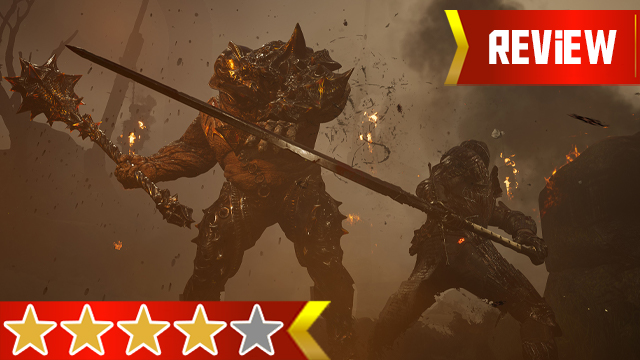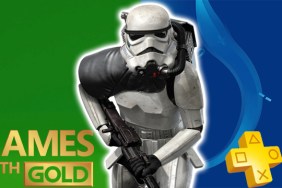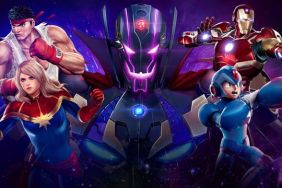MORTAL SHELL REVIEW FOR PS4, PC, XBOX ONE. While Soulslikes have been struggling to keep up with From’s genre-topping efforts over the past decade, gaming as a whole has been confusing “bigger” for “better” in that same time frame. They’re two separate issues but are both ones that Mortal Shell simultaneously confronts head-on with a flaming mace in hand. Shamelessly Soulsian in its overall style, it doesn’t attempt to beat From at its own game. Instead, it thoughtfully borrows from that established formula, using a keen sense of intuition to know exactly when to scale back and push ahead.
Getting hard
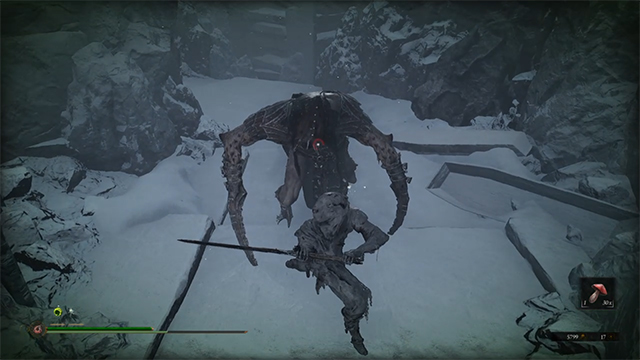
Screenshots or an out-of-context gameplay snippet of Mortal Shell may give the impression that it doesn’t push ahead at all. It clearly looks a lot like Dark Souls, after all. However, all of its novelties and wonderful ideas lie just beneath its hardened shell.
Hardening is actually one of those clever additions. Instead of blocking, players can turn to stone in an instant, negating all attacks (except for some grabs) no matter what they’re doing. The armor crumbles once struck and is on about a 10-second cooldown, but it leaves most enemies vulnerable when they recoil after striking your rocky exterior.
This simple change turns blocking into a far more fluid part of the combat since you don’t need to make such conscious choices between offense and defense. A mistimed swing can turn into a well-timed counter since freezing while winding up will not just save you, but immediately club the enemy right after they bounce off your rocky skin. It may start out as a novice, accidental strategy, but it’s effective and is the first step for using Harden in more advanced ways.
Hardening can also allow you to safely heal, salvage a botched early parry, safely let your stamina refill, and can even save you from fatal drops, damaging enemies on the ground if you have the proper upgrade. Such flexibility is invaluable and demonstrates the incredible malleability of this mechanic, which is ironic considering its literal rigidity. Combing Harden with the I-frame-heavy dodge roll equips players with two viable defensive maneuvers that give them complete control over their mortal shell without any sacrifices.
Mortal combat
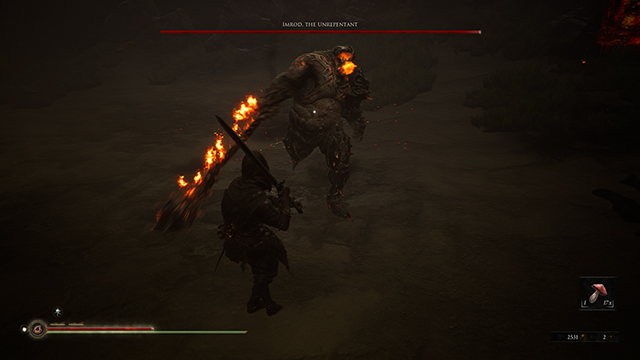
Defense is only half the equation since the game’s offensive options are similarly multifaceted. Hitting enemies builds a super meter-like Resolve bar that can be spent a 300-esque kick, a weapon-specific special attack, or through one of the parries. After you find the right upgrades in the world, Resolve-fueled parries can either reward you with health, a powerful focused strike, or a sticky bomb that can hit multiple enemies.
Weapon-specific special attacks take more resolve but are easier to execute. Parries aren’t as expensive but require more strict timing. There are no useless options; just ones that are better fits for certain situations. And constantly weighing the risk and reward associated with each move is where a lot of Mortal Shell’s depth comes from. Even the kick is useful, given all the areas with precariously high ledges and very, very kickable enemies.
Resolve is one of the few aspects that all of the four classes handle differently. Each shell has a different specialization and are all viable in their own unique ways. Tiel’s teleport-like dodge and high stamina make him ideal for elusive defensive play while Solomon’s high Resolve is for those who want riskier and more rewarding combat.
Their differences grow more stark — and impressive — once you delve into their skill tree. A majority of their 10 skills are designed to exploit that shell’s exclusive properties and open up more possibilities within combat. And even though switching classes could be a little less tedious, the game doesn’t lock you into one class after leveling said class up.
Skill points — called Glimpses — are often dropped as consumables that can be redeemed by any class while Tar (think Souls) are consistent across all four of them. This means that you can main one shell yet still have points to dump into the other ones since you have a lot of control over where your Glimpses and Tar go and there’s enough to spread around. Switching shells isn’t always an option and can be a little tedious but using one class does not automatically weaken the others. This relatively open style allows for players to better appreciate the unique properties of the classes while also opening up more gameplay possibilities.
Taking some of the “RPG” out of “action RPG”
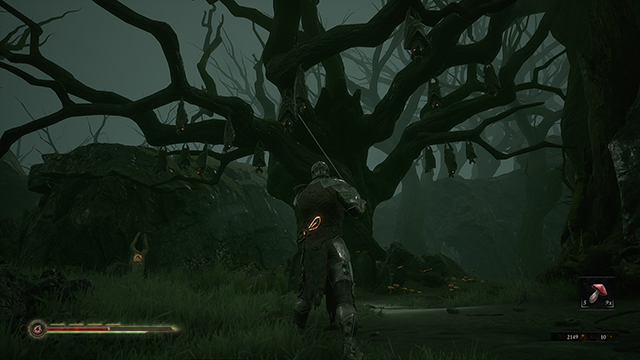
A lot of this is possible because of Mortal Shell’s bold decision to strip out a lot of the RPG elements of the action RPG genre. For the most part, you can’t upgrade your stats. Your health, stamina, attack power, defense, and Resolve will be almost exactly the same level at the beginning and end of the game.
Rare items yield some new abilities or minor stat boosts, but the game doesn’t rely too heavily on them. In essence, there are just enough of these items to facilitate a gratifying sense of progression and exploration without retreating too far back into RPG territory. Stripping the stat-building elements out of Mortal Shell seems like it would be a disaster designed to rob players of experiencing growth that’s inherent to the genre, but it ends up only pruning out the fluffy grind and focusing on the meaty moment-to-moment gameplay.
Grinding is essentially out of the question because of how Glimpses are mostly relegated to fighting new enemies and searching for Glimpse-related consumables. This not only helps with pacing but also guarantees that you don’t need more health or stamina points to kill a boss; you just need to get better and practice. Prioritizing that players skillfully learn and improve instead grinding to numb the pain is a more productive cycle.
Cutting out leveling mechanics also opens up how the overall game unfolds. From Bloodborne to Assassin’s Creed Odyssey, many RPGs are built on the oxymoron of level-gated freedom as areas are often soft-gated by powerful enemies. Linear progression in an open game can feel uncharacteristically restrictive.
Mortal Shell takes a more free-form approach as its three worlds can be tackled in any order. Organically stumbling upon a new area means you can dive in right away without fearing that you’ve mistakenly stepped into an endgame dungeon where you’ll lose all of your Tar in a single swipe. You’re carving your own path and that liberty shouldn’t be understated; a liberty afforded by the lack of a traditional leveling system.
The sanctity and scourge of a smaller-scale Soulslike
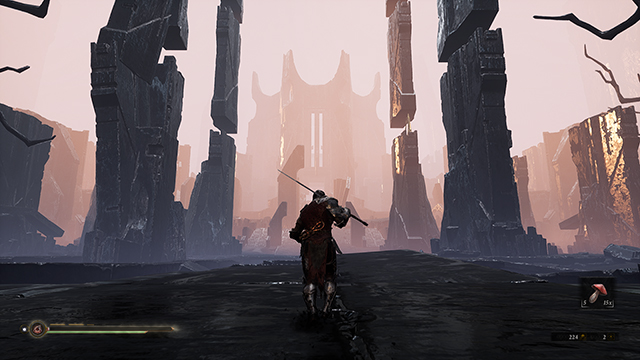
Snipping out RPG systems and nonlinear hub world system are byproducts of its modest nature. Mortal Shell probably won’t take players more than 15 to 20 hours to complete, even if they tiptoe through its foggy swamps and desolate, otherworldly wastelands. But instead of feeling thin and hollow, it uses its content economically to prioritize quality over quantity. It’s why the game has so many rewarding gameplay mechanics but doesn’t lock them behind endless grinding that stretches everything out.
The four biomes also prove this as they are all visually distinct without a ton of unnecessary padding. Paths can sometimes be overly linear, but some of that is excused by how they change after defeating a boss. Fog rolls in with tougher foes that can yield better items and previously closed chests, efficiently turning typical backtracking into a more tense affair that balances risk and reward.
However, a few of its shortcomings can also likely be pinned on its scaled-down vision. Enemy variety is passable but each of them (including bosses) only have around two or three attacks. Fewer possible moves means it’s a little easy to predict what is going to happen and repeat the same tactics in order to come out on top. Mortal Shell is not an easy game because of this — you’ll still die a lot — but this oversight can artificially lower the difficulty as foes behave predictably after you’ve seen their shallow bag of tricks a few times.
The “less is more” approach also doesn’t quite work for its story either. Like From’s games, the narrative is more implied than explicitly told as you’re meant to gather what happened through vague monologues, lore diaries, and the world itself. Dialogue is delivered well and the writing is poetic more often than not, but there aren’t enough disparate lore bits to glue together into something more cohesive. Riding the line between intrigue and baffling ambiguous is tough and Mortal Shell simply doesn’t find the right balance.
Bugs can also unbalance the game in a destructive way. Crashes, getting stuck on level geometry, and other unexplainable glitches aren’t too prevalent, but they do show up from time to time. And since progress can be so easily lost, any sort of technical mishap out of your control can be quite maddening. Soulslikes should only frustrate players fairly, more so than most other genres.
Mortal Shell Review | The final verdict
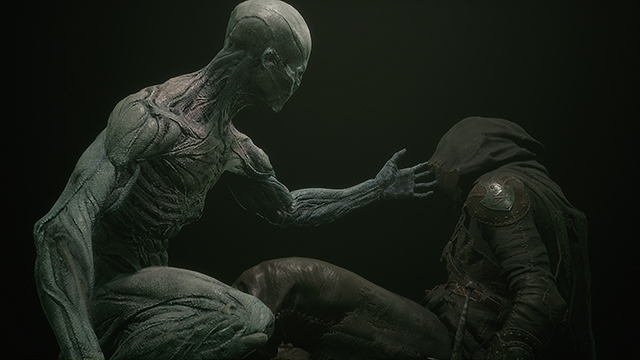
Mortal Shell’s scope ends up being a more significant net gain as it offers a brisk Soulslike experience without trying to overwhelm players with content for content’s sake. Satisfying, versatile melee combat doesn’t hide behind a tedious grind yet it still has a fulfilling progression system. Areas aren’t gigantic, but have a distinct look and meaningfully change around after you kill the boss. All of its inventive ideas may not be immediately apparent and mean it could easily be mistaken for yet another hackneyed Dark Souls clone destined to die in the digital bargain bin. But Mortal Shell‘s innovation is there once you dig just beneath its hardened exterior.
GameRevolution reviewed Mortal Shell on PS4. Code provided by the publisher.
-
Deliberate melee combat with a plethora of viable, strategic options and distinct classes.
-
Progression isn’t dependent on leveling which allows for a more open experience.
-
Solid atmosphere with a healthy sense of style.
-
Provides a meaty experience without wasting your time.
-
Occasionally buggy.
-
Enemies could use more attacks.
-
Storytelling is a hair too vague and ethereal.
